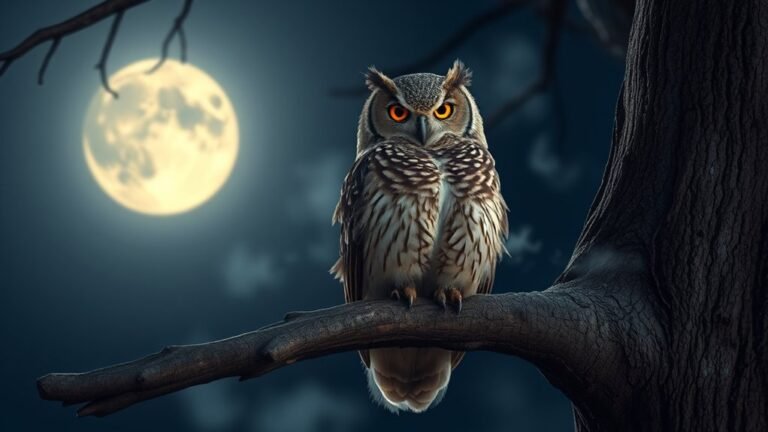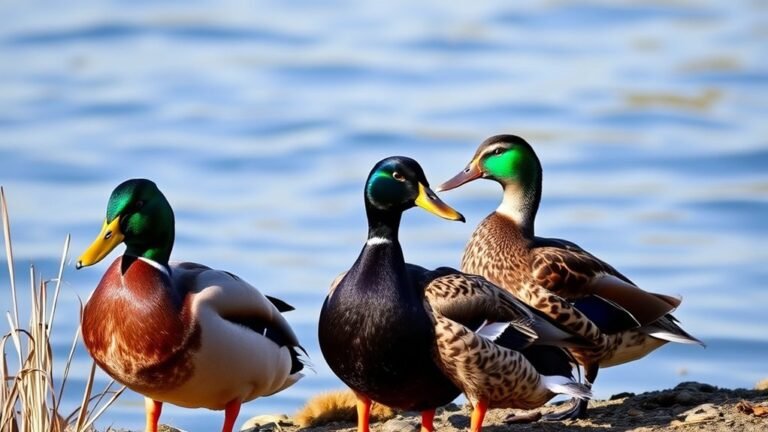Owls Found in Iowa: A Comprehensive Guide
Iowa is home to many interesting owls. Each type of owl has special features and lives in different places, like thick forests or neighborhoods. Learning about what makes each owl unique and where they live can be fun and helpful for anyone who likes birds.
Owls have special skills that help them survive. For example, their big eyes help them see well in the dark, and their silent flight helps them catch food without making noise. These traits are important for their daily lives. By looking at these skills, we can better understand how owls fit into the ecosystem in Iowa.
So, whether you're an owl lover or just curious, exploring the different owls in Iowa can be exciting. You'll learn how they live and what makes them special!
A Quick Overview
Iowa is home to many types of owls, like Great Horned Owls, Barn Owls, Barred Owls, and Eastern Screech Owls. Each kind of owl has its favorite spot to live.
Great Horned Owls like to stay in woods. You can even see them in cities. Barn Owls love to hang out near farms and grasslands. Barred Owls choose thick forests near rivers and lakes. They use tree holes to make their nests. Eastern Screech Owls like living in suburbs and sometimes use birdhouses for their homes.
If you want to see an owl, be patient. Listen for their calls. Look in woods, fields, and near water during dawn or dusk.
In Iowa, we work hard to protect owl homes. These efforts help keep our environment healthy and encourage people to get involved in caring for nature.
Overview of Owl Species in Iowa

Iowa is home to many interesting owl species. If you love birds, you'll enjoy learning about them. Owls migrate to find food and the right living conditions. Different owls like different places to live.
For example, the Great Horned Owl likes to stay in the woods. They make their homes in trees and forests.
On the other hand, the Barn Owl prefers fields and grasslands, especially near farms where they can find mice.
Knowing where these owls live can help you spot them. Watching these nighttime birds can make you feel more connected to nature.
Iowa's variety of owls shows how important it's to take care of our environment. By learning about them, you can appreciate the beautiful balance of life all around you.
Common Owls of Iowa: Characteristics and Habitats
Iowa has many kinds of owls that are fun to watch. Each type of owl has special features that help it live in different homes. The Barred Owl likes to live near rivers and lakes, often in thick forests.
The Great Horned Owl, on the other hand, can be found in open woods and even in cities. This owl is good at living in many places.
When it comes to nests, Barred Owls often use tree holes or old nests that belong to other birds. Great Horned Owls prefer to nest high up on ledges or tall branches.
The Eastern Screech Owl is more common in suburbs. It likes to use tree holes or birdhouses for nesting.
Learning about these owls helps us understand how they live and care for their young. It also helps us feel more connected to the birds in Iowa.
Watching these amazing creatures can be a rewarding experience!
Tips for Spotting Owls in the Wild

Want to spot owls in the wild? Here are some easy ways to help you find them.
- Listen for calls: Owls make special sounds. If you hear hooting or chirping, pay attention! This could mean there's an owl nearby.
- Look in the right places: Owls like to stay in certain spots. Check out wooded areas, places near water, and wide open fields. These are their favorite hangouts.
- Be patient: Owls are quiet flyers. Stay still and keep your eyes open. You might've to wait for a while, but it could be worth it!
By following these tips, you might just spot an owl in the wild.
Good luck and happy owl watching!
Owls' Unique Adaptations and Behaviors
Owls are very interesting creatures that have special skills to help them hunt at night. They've big eyes that help them see in the dark, and their feathers let them fly quietly. This makes it easier for them to catch their food without being noticed.
Owls are great at hearing sounds, which helps them find prey even if it's moving a little. Their heads can turn almost all the way around, up to 270 degrees. This ability helps them keep an eye on everything around them so they don't miss a thing.
When owls hunt, they're very efficient, catching their meals by surprise. This talent shows how well they've adapted to their environment.
Owls teach us about nature and play an important role in the ecosystem. They're truly amazing birds!
Conservation Efforts for Iowa's Owls

Conserving owls in Iowa is important. Owls help keep rodent numbers low. This makes farming easier and supports healthy crops. When we protect owl habitats, we help many other plants and animals too. A healthy environment needs a mix of species to thrive.
Groups and volunteers work to keep these habitats safe. They take actions like planting trees and cleaning up areas for owls to live.
Schools and local organizations teach people about owls. Learning about these birds helps everyone feel more connected to nature.
When community members get involved, they can help protect local environments. Simple actions, like spreading the word or participating in clean-ups, make a big difference.
Together, we can help keep Iowa's owls safe and healthy for future generations!
Frequently Asked Questions
What Time of Year Are Owls Most Active in Iowa?
Owls are most active from late winter to early spring. This is when they are breeding. During this time, they hunt more often to find food for their young. They are very busy and focused on caring for their families. So, if you want to see owls, this is the best time to look for them in Iowa!
Are There Any Owl Festivals or Events in Iowa?
In Iowa, there are fun owl festivals where you can enjoy activities like watching owls and learning about them. You can meet other owl lovers, share stories, and ask questions. These events are a great way to have fun while discovering more about these amazing birds. Plus, you will feel part of a friendly community that loves nature!
How Do I Report an Injured Owl in Iowa?
If you see an injured owl, please call local wildlife rescue groups or owl rehab centers right away. They can help you know what to do next. Their job is to make sure the owl gets the help it needs. Acting quickly can really make a difference!
Can Owls Be Kept as Pets in Iowa?
You can't keep owls as pets in Iowa. There are laws about wildlife that prevent it. Owls are special birds that need a specific kind of care. They also need a natural home to live in, where they can thrive. Learning about pet ownership laws is important if you love animals. Remember, it's best to enjoy these majestic birds in the wild or in a proper wildlife setting!
What Sounds Do Different Owl Species Make?
Owls make different sounds depending on their species. Some owls hoot softly, while others have sharp calls. These sounds help owls communicate with each other. By listening to their hooting, we can learn how they hunt and interact with others in their environment. Each sound tells us something unique about the owl's behavior and social life. So, the next time you hear an owl, pay attention!

Luna is the passionate founder and author of Birds and You, a website dedicated to sharing her love for birds with fellow enthusiasts. Through her engaging articles and guides, she aims to educate and inspire others to explore the fascinating world of birds. When she’s not writing, you can find Luna observing birds in their natural habitats or sharing beautiful bird photography on Pinterest. Join her on this journey to celebrate and protect our feathered friends!







